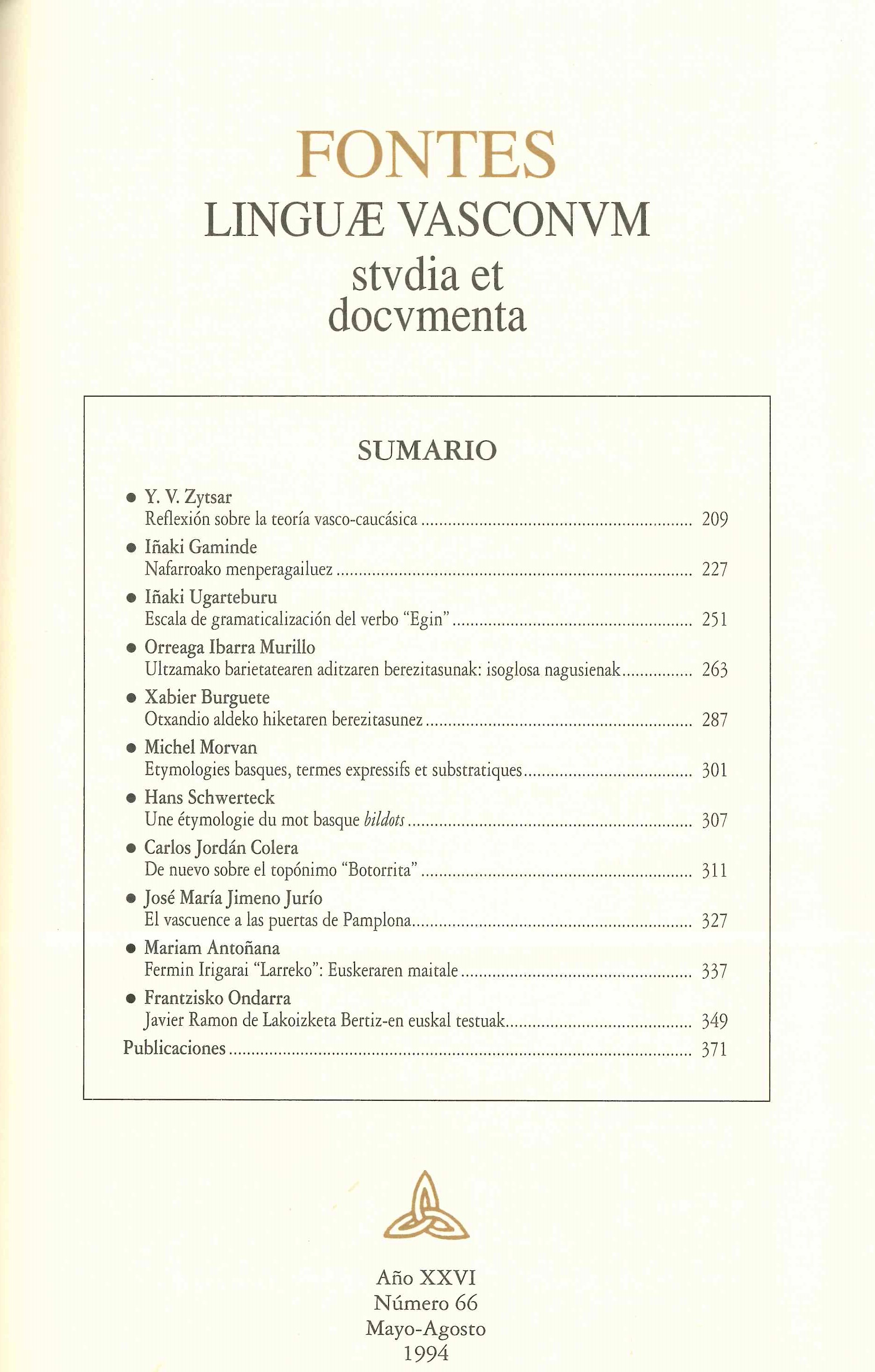Escala de gramaticalización del verbo «Egin»
Abstract
Verbs of action show a clear tendency to loss of meaning. The verb "egin" can also appear both in the lexicon or in the morphological paradigmata as a morpheme void of semantic content. In such a case, the developing of a programme or grammatically marked scale in order to establish a comparison with similar verb patterns in other languages can be of especial interest.
Both ends of the scale will be framed, on the one hand, by the lexical element with the maximum semantic content (make, manufacture, carry out), and, on the other, by the auxiliary verb as a means of expressing mood and showing the maximum grammatical function, and which even comes to have a minimum phonic expression, and to coincide with the very verbal lexeme ((i) being the only vowel coincident with the person morpheme).
In this paper the total scope of values between both ends of the scale are analyzed and classified into nine categories. That is to say, the values with a more or less marked lexical element, and their placement with regard to the grammatically marked scale.
##about.statistics##
Copyright (c) 1994 Iñaki Ugarteburu

This work is licensed under a Creative Commons Attribution-NonCommercial 4.0 International License.







